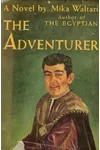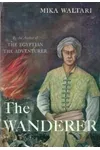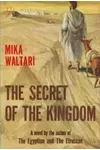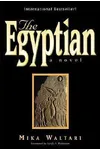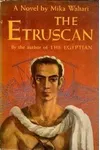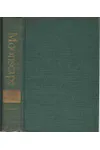Picture a Finnish storyteller who spun ancient worlds into vivid life, captivating readers across the globe—meet Mika Waltari! Born in Helsinki in 1908, this literary giant transformed personal tragedy into a prolific career, crafting historical epics, detective tales, and more. His masterpiece, The Egyptian, became a global sensation, blending rich history with timeless human struggles.
Waltari’s knack for weaving universal themes—love, faith, and the search for meaning—into gripping narratives made him Finland’s most celebrated 20th-century author. Let’s dive into his remarkable journey, from a boy facing loss to a writer whose stories still resonate today.
The Making of Mika Waltari
Mika Toimi Waltari was born on September 19, 1908, in Helsinki, Finland, to a Lutheran pastor father, Toimi, and mother, Olga. At just five years old, Mika faced heartbreak when his father died suddenly, leaving his mother to raise three children with help from family. This early loss shaped Waltari’s introspective nature, fueling his storytelling. He enrolled at the University of Helsinki, initially studying theology at his uncle’s urging, but soon switched to philosophy, aesthetics, and literature, graduating in 1929. His time in Paris in 1927 sparked his first major novel, The Grand Illusion, a bohemian tale echoing the Lost Generation’s spirit, which sold 8,000 copies and launched his fame.
Mika Waltari’s Unforgettable Stories
Waltari was a literary chameleon, effortlessly shifting between genres. His magnum opus, The Egyptian (1945), follows Sinuhe, a physician in ancient Egypt, navigating love, betrayal, and existential crises. Its meticulous research and poignant parallels to post-World War II disillusionment made it an international bestseller, later adapted into a 1954 Hollywood film. The Wanderer (1949) traces a Finn’s adventures in 16th-century Europe, blending picaresque humor with historical depth. The Etruscan (1955) explores ancient Italy’s mysteries, while The Roman (1964) delves into early Christianity’s rise. Waltari’s historical novels often feature isolated protagonists on epic journeys, reflecting his own travels and fascination with human resilience.
Beyond historical epics, Waltari created Inspector Palmu, a gruff Helsinki detective starring in three beloved mystery novels, all filmed in Finland. His playful versatility extended to poetry, plays, travelogues, and even comic strip texts, showcasing a relentless work ethic despite struggles with manic-depressive episodes. His vivid prose and universal themes—hope amidst chaos, the clash of idealism and realism—captivated readers worldwide.
Why Mika Waltari Matters
Waltari’s global impact lies in his ability to bridge past and present, making ancient worlds feel urgent and relatable. His works, translated into over 40 languages, influenced authors like G.R.R. Martin and Jean Auel, who admired his immersive historical fiction. In Finland, he’s a cultural icon, honored with five State Literature Awards, the 1952 Pro Finlandia Medal, and a 2008 commemorative coin. His stories, rich with humanist wisdom, offer solace in turbulent times, reminding us of our shared humanity. Waltari’s memorial in Helsinki and two named asteroids—4266 Mika Waltari and 4512 Sinuhe—cement his enduring legacy.
- Born: September 19, 1908, Helsinki, Finland
- Key Works: The Egyptian, The Wanderer, The Etruscan, The Roman
- Awards: Five State Literature Awards, Pro Finlandia Medal (1952)
- Died: August 26, 1979, Helsinki, Finland
Ready to travel through time? Snag The Egyptian and dive into Mika Waltari’s spellbinding world of history and heart!
